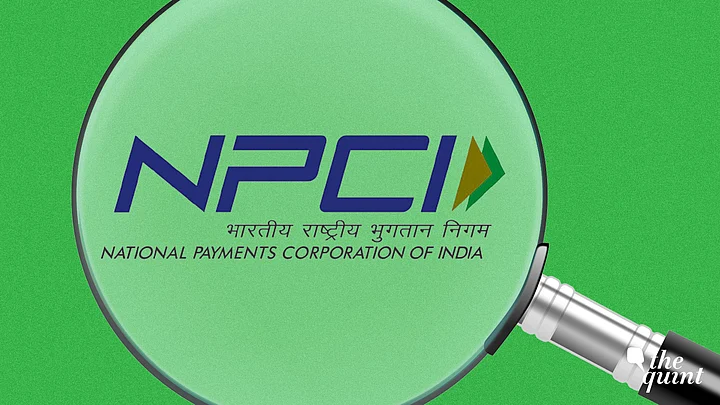In a hearing which lasted well over two hours, the Central Information Commission, on Wednesday, 28 August, heard arguments on what the National Payment Corporation’s (NPCI) relation is with the government.
The Central Information Commission (CIC), in an order on 18 July, declared that a complaint brought before it “involves a substantial question of law”.
The question before the CIC is “whether National Payments Corporation of India (NPCI) is a public authority and whether the information sought is required to be disclosed,” the order states.
In other words, should the NPCI come within the ambit of the RTI?
After five hearings at the CIC headquarters in New Delhi since 1 November 2018, the petition, being heard by Information Commissioner Suresh Chandra was referred to a division Bench.
On Wednesday, a Bench of information commissioners Neeraj Gupta and Suresh Chandra heard arguments on whether NPCI is ‘owned, controlled or substantially financed’ by the government. Sanjay Saxena, NPCI’s Chief Finance & Legal Officer (CFO) was also present at the hearing.
NPCI ‘Owned, Controlled, Substantially Financed’?
Complainant Neeraj Sharma, represented by advocates Nikhil Borwankar and Pulkit Verma, argued that there are two aspects in deciding if NPCI qualifies as a public authority.
- NPCI performs a public function.
- How does the government view this entity?
According to the admitted facts, all the functions, BHIM, UPI, RuPay, Aadhaar Enabled Payment System, performed by the NPCI are public functions.
On the second point, the complainant’s submission contended that the Comptroller and Auditor General (CAG) report mentioned two Sections: 139 (5) and 139 (7), under which it audited NPCI and both the sections pertain to the CAG’s powers to audit government entities.
NPCI’s counsel, in its response refuted the argument, contending that the CAG has the authority to audit even private companies.
The complainant also argued that NPCI has not a statutory body formed under the Payments and Settlements Act, 2007, and that the Act only provides a supervisory framework for the corporation.
“Whether NPCI is a statutory body or not is immaterial.”
NPCI Enjoying Monopoly?
The appellant, in the submission, argued that NPCI enjoys monopoly in the digital transaction through UPI, which is protected by the State i.e. Reserve Bank of India (RBI), as it only granted authorisation to the Respondent Company to own and to operate UPI Application.
NPCI refuted this claim saying that UPI or RuPay are not monopolies. “We are in competition with 90 entities. RuPay is not a monopoly as they claim.”
The Bench asked the appellants how they could claim that RuPay is a monopoly when VISA and Mastercard also operate in the market? It also asked NPCI’s lawyer how UPI is not a monopoly since only NPCI could operate it.
RBI Nothing But a Regulator: NPCI
“In our case, RBI is nothing more than a regulator,” the counsel for NPCI argued.
The corporation’s rebuttal to the complainant’s argument stated that NPCI is neither controlled nor substantially financed by RBI but the central bank is only supervisory or regulatory in nature.
The appellant's submission, however, contended that “the control of the Reserve Bank of India is not merely a regulatory control but a pervasive control over the day-to-day policy making by appointing the Key Managerial Personnel of the Respondent Company.”
Sharma told The Quint,
“In a reply to an RTI, we found that AP Hota, the chief general manager of the RBI, was deputed by the Bank for two years to the management. Moreover, the RTI also revealed that RBI had provided office space as well as an inventory list of items to NPCI.”Neeraj Sharma
The Bench, however, concluded by stating that they may have one more hearing as they found some of the legal arguments to be confusing and unconvincing.
(At The Quint, we question everything. Play an active role in shaping our journalism by becoming a member today.)
